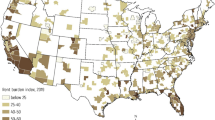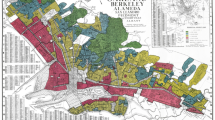Abstract
The objective of this paper is to use an ecological model to consider the association of individual, household and village level factors with the happiness or subjective well-being of working age Muslim adults living in the southernmost provinces of Thailand. A civil conflict has been ongoing in this area with a documented incidence of violence and an associated increase in migration. Data were drawn from two rounds of a probability sample of adult women and men living in 1102 Muslim households. Mixed models were used in the analysis. Positive individual factors related to happiness were secular education, strictness of religious practice, and health. Positive household factors included relative household wealth and family support. Positive village factors included the village migration level and community support. Violence was associated with reduced happiness, especially for women. However, the adult residents of the southernmost provinces maintain a positive sense of well being.
Similar content being viewed by others
References
Abas, M. A., Punpuing, S., Jirapramukpitak, T., Guest, P., Tangchonlatip, K., Leese, M., & Prince, M. (2009). Rural-urban migration and depression in ageing family members left behind. British Journal of Psychiatry, 195, 54–60.
Abdel-Khalek, A. M. (2014). Religiosity and well being in a Muslim context. In C. Kim-Priet (Ed.), Religion and spirituality across cultures. Cross cultural advancements in positive psychology. (Vol. 9). Springer.
Allison, P. D. (2009). Fixed effects regression models. Quantitative applications in the social sciences (160). Sage.
Antman, F. M. (2013). The impact of migration on the family left behind. In A. F. Constant & K. F. Zimmerman (Eds.), International handbook on the economics of migration (pp. 293–308). Edward Elga Publishing.
Axinn, W., Ghimire, D. J., Williams, N., & Scott, K. M. (2013). Gender, traumatic events and mental health disorders in a rural Asian Setting. Journal of Health and Social Behavior, 54, 444–461.
Baita, S. (2005). Coping with childhood trauma and dissociation in Argentina. Journal of Trauma Practice, 4(1), 35–53.
Ban-Klimek, A., Karatazias, T., Elliott, L., & Maclean, R. (2015). The determinants of well-being among international economic immigrants: A systematic literature review and meta-analysis. Applied Research on the Quality of Life, 10, 161–168.
Bohra-Mishra, P., & Massey, D. (2011). Individual decisions to migrate during civil conflict. Demography, 48, 401–424.
Borraz, F., Pozo, S., & Rossi, M. (2008). And what about the family back home? International migration and happiness. Proceedings of the German economic development economics conference, Zurich, No. 2, Verein fur Socialpolitik, Ausschuss fur Entwicklungslander.
Breslau, N. (2002). Epidemiologic studies if trauma, posttraumatic stress disorder and other psychiatric disorders. Canadian Journal of Psychiatry, 47, 923–929.
Bunting, B. P., Ferry, F. R., Murphy, S. D., O’Neil, S. M., & Bolton, D. (2011). Trauma associated with civil conflict and posttraumatic stress disorder: Evidence from the Northern Ireland Study of Health and Stress. Journal of Traumatic Stress, 26, 134–141.
Camfield, L., Guillen-Royo, M., & Velazco, J. (2010). Do needs satisfaction matter for psychological and subjective well being in developing countries: A mixed methods illustration from Bangladesh and Thailand. Journal of Happiness Studies, 11, 497–516.
Campate, F., & Yanagizawa-Drott, D. (2015). Does religion affect economic growth and happiness? The Quarterly Journal of Economics, 130, 615–658.
Chalk, P. (2008). The Malay Muslim insurgency in Southeast Asia: Understanding the conflicts evolving dilemma. Rand Corporation.
Collier, P. (1999). On the economic consequences of civil war. Oxford Economic Papers, 51, 168–183.
Croissant, A. (2005). Unrest in southern Thailand: Contours, causes, and consequences since 2001. Contemporary Southeast Asia, 27, 21–43.
Diener, E., Suh, E. M., Lucas, R. E., & Smith, H. L. (1999). Subjective well-being: Three decades of progress. Psychological Bulletin, 125, 276–302.
Filmer, D., & Pritchett, L. H. (2001). Estimating wealth effects without expenditure data—Or tears: An application to the educational enrollment in states of India. Demography, 38, 115–132.
Forbes, A. D. W. ed. (1988–1989). The Muslims of Thailand. Gaya (Bihar). Centre for Southeast Asian Studies.
Ford, K., Jampaklay, A., & Chamratrithirong, A. (2017). Mental health in a conflict setting: Migration, economic stress and religiosity in the three southernmost provinces of Thailand. International Journal of Social Psychiatry, 63, 91–98.
Ford, K., Jampaklay, A., & Chamratrithirong, A. (2019). Long term civil conflict, migration and the mental health of adults left behind in Thailand: A longitudinal study. International Journal of Public Health, 64, 1193–1201.
Frey, B. (2004). Dealing with terrorism: Stick or carrot? Edward Elgar Publishing Company Limited.
Frey, B. B. (2019). Happiness and religion. In Economic of happiness (pp. 59–62). Springer.
Frey, B. S. (2011). Peace, war and happiness: Bruder Klaus as wellbeing facilitator. International Journal of Well Being, 1, 226–234.
Frey, B. S., Luechinger, S., & Stutzer, A. (2007). Calculating tragedy: Assessing the costs of terrorism. Journal of Economic Surveys, 21, 1–24.
George, L. K. (2010). Still happy over all these years: Research frontiers on subjective well-being in later life. Journal of Gerontology and Social Science, 65B, 331–339.
Gray, R. S. (2012). Happiness in Thailand. In H. Selin & G. Davey (Eds.), Happiness across cultures: Science across cultures: The history of non-western science. (Vol. 6). Springer.
Gray, R. S., Kramanon, R., & Thapsuwan, S. (2008). The determinants of happiness among the Thai people: Some evidence from Chai Nat and Kanchanaburi. Thammasat Economic Journal, 26, 72–87.
Gray, R. S., Tantipiwatanaskul, P., & Suwannoppakao, R. (2010). Happiness among Thai people: Living a virtuous life, spirituality, and self esteem. Journal of Mental Health of Thailand, 18, 71–85.
Guillen Royo, M., & Velazco, J. (2006). Exploring the relationship between happiness, objective and subjective well being: Evidence from rural Thailand. Wellbeing in developing countries. WeD Working paper 16. University of Bath: Economic and Social Research Council.
Herman, A. A., Williams, D., Stein, D. J., Seedat, S., Heeringa, S. G., & Moomal, H. (2008). The South African Health and Stress Study (SASH): A foundation for improving mental health care in South Africa. In R. C. Kessler & T. B. Ustin (Eds.), The WHO world mental health surveys: Global perspectives on the epidemiology of mental disorders (pp. 238–264). Cambridge University Press.
Jampaklay, A., Ford, K., & Chamatrithirong, A. (2017). How does unrest affect migration? Evidence for the three southernmost provinces of Thailand. Demographic Research, 37, 25–52.
Jampaklay, A., Ford, K., & Chamratrithirong, A. (2020). Migration and unrest in the deep South Thailand: A multi-level analysis of a longitudinal study. Demography. Online First.
Jampaklay, A., & Vapattawong, P. (2013). The subjective well-being of children in transnational and non-migrant households: Evidence from Thailand. Asian and Pacific Migration Review, 22, 377–4000.
Jitpiromsri, S. (2014). An inconvenient truth about the deep south violent conflict: A decade of chaotic, constrained realities and uncertain resolution. Deep South Watch.
Joarder, M. A. M., Harris, M., & Dockery, A. M. (2016). Remittances and happiness of migrants in their home households. Evidence from matched samples. The Journal of Development Studies, 53, 422–443.
Jones, R. C. (2013). Migration and family happiness in Bolivia: Does social disintegration negate economic well-being? International Migration, 52, 177–193.
Jongudomkarn, D., & Camfield, L. (2006). Exploring the quality of life of people in northeastern and southern Thailand. Social Indicators Research, 78, 489–529.
Lindstrom, D. P., & Ramirez, A. L. (2010). Pioneers and followers: Migrant selectivity and the development of US migration streams in Latin America. Annals of the American Academy of Political and Social Science, 630, 53–77.
Lu, L. (1999). Personal or environmental causes of happiness: A Longitudinal analysis. The Journal of Social Psychology, 139, 79–90.
Lu, Y. (2008). A test of the healthy migrant hypothesis: A longitudinal analysis of health selectivity in Indonesia. Social Science and Medicine, 67, 1331–1339.
Lu, Y. (2012). Household migration, social support, and psychological health: The perspective from migrant sending areas. Social Science and Medicine, 74, 135–142.
Maximillian, M. (2018). The slow burning insurgency in Thailand’s deep south. The Diplomat. Retrieved February 6, 2018, from https://www.thediplomat.com/2018/02/theslowburninginsurgencyinThailand’sdeepsouth/. Accessed 8 Feb 2018.
Monkol, A., Vongpiromsan, Y., Tangseree, T., Watchanee, H., & Piaiwar, P. (2007). The development and testing of the Thai Mental Health Indicator. Version 2007. Journal of the Psychiatric Association of Thailand, 54, 299–316.
Muldoon, O. T., Trew, K., & McWhirter, L. (1998). Children’s perception of negative events in Northern Ireland: A ten year study. Child and Adolescent Psychiatry, 7, 36–41.
Murphy, M., & Lloyd, K. (2007). Civil conflict in Northern Ireland and the prevalence of psychiatric disturbance across the UK: A population study using the British Household Panel Survey and the Northern Ireland Panel Survey. International Journal of Social Psychiatry, 53, 397–407.
Nobles, J., Rubalcava, L., & Teruel, G. (2015). After spouses depart: Emotional wellbeing among nonmigrant Mexican mothers. Social Science and Medicine, 132, 236–244.
Obrizon, M. (2019). Violent conflict and happiness: Evidence from the 2016 ‘Life in Transition’ III survey. Economics Bulletin, 39, 192–199.
Parks, T., Coletta, N., & Oppenheim, B. (2013). The contested corners of Asia: Subnational conflict and international development assistance. Asia Foundation.
Pholphirul, P. (2015). Happiness from giving: Quantitative investigation of Thai Buddhists. Applied Research on the Quality of Life, 10, 703–720.
Richard, L., Gauvin, L., & Raine, K. (2011). Ecological models revisited: Their uses and evolution over two decades. Annual Review of Public Health, 32, 307–326.
Rukumnuaykit, P. (2014). Urbanization, poverty and subjective well-being: Empirical evidence from Thailand. Urban Policy and Research, 33, 98–118.
Rukumnuaykit, P., & Pholphirul, P. (2016). Happiness from social capital: An investigation from microdata in rural Thailand. Community Development, 47, 562–573.
Salgado de Snyder, V. N. (1993). Family life across the border: Mexican wives left behind. Hispanic Journal of the Behavioral Sciences, 15, 3910401.
Senasu, K., & Singhapakdi, A. (2017). Determinants of happiness in Thailand: The moderating role of happiness. Journal of Human Behavior in the Social Environment, 27, 270–290.
Shin, S., & Jung, K. (2020). Mediating role of community participation between physical environments, social relationships, social conflicts, and quality of life: Evidence from South Korea. Applied Research Quality Life, 15, 1433–1450. https://doi.org/10.1007/s11482-019-09747-8
Takuda, Y., Fujui, S., & Inoguchi, T. (2017). Individual and county level effects of social trust on happiness: The Asia Barometer Survey. In T. Inogochi & Y. Tokada (Eds.), Trust with Asian characteristics trust (interdisciplinary perspectives) (Vol. 1, pp. 123–139). Springer.
UCDB. (2006). Upsala conflict data base. Retrieved from www.pcr.uu.se/database/index.php.
UNICEF East Asia and Pacific Regional Office. (2014). Thailand case study in education, conflict and social cohesion. UNICEF.
Welch, H. (2008). The social costs of civil conflict: Evidence from surveys of happiness. Kyklos, 61, 320–340.
Winzer, L., & Gray, R. S. (2019). The role of Buddhist practices in happiness and health in Thailand: A structural equation model. Journal of Happiness Studies, 20, 411–425.
Wold, B., & Mittelmark, M. B. (2018). Health promotion research over three decades: The social-ecological model and challenges in implementation of interventions. Scandinavian Journal of Public Health, 46(Suppl 20), 20–26.
Wun’gaeo, S., Jumnianpol, S., Nuangjamnong, N., Srisupan, P., & Chimmamee, M. (2017). Social well being in Thailand 2016: Survey report. The Shensu Social Well Being Review, 4, 75–93.
Yiengprugsawan, V., Somboonsock, B., Seubsman, S., & Sleigh, A. C. (2012). Happiness, mental health, and socio-demographic association among a national cohort of Thai adults. Journal of Happiness Studies, 13, 1019–1029.
Funding
Funding was provided by Mahidol University.
Author information
Authors and Affiliations
Corresponding author
Ethics declarations
Conflict of interest
The authors have no conflicts of interest.
Additional information
Publisher’s note
Springer Nature remains neutral with regard to jurisdictional claims in published maps and institutional affiliations.
Rights and permissions
About this article
Cite this article
Ford, K., Jampaklay, A. & Chamratrithirong, A. A Multilevel Longitudinal Study of Individual, Household and Village Factors Associated with Happiness Among Adults in the Southernmost Provinces of Thailand. Applied Research Quality Life 17, 1459–1476 (2022). https://doi.org/10.1007/s11482-021-09973-z
Received:
Accepted:
Published:
Issue Date:
DOI: https://doi.org/10.1007/s11482-021-09973-z




